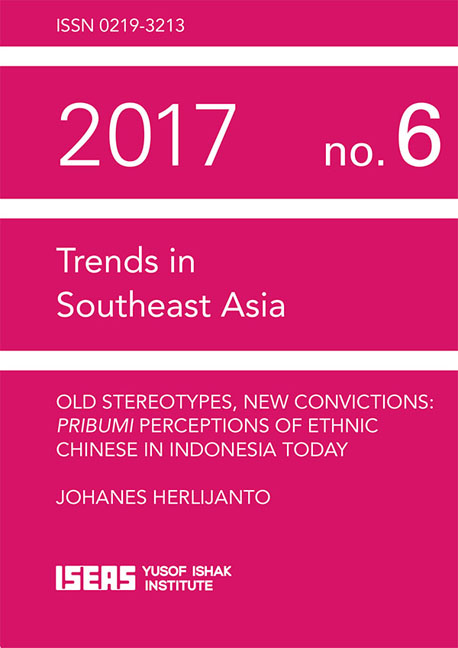Old Stereotypes, New Convictions: Pribumi Perceptions of Ethnic Chinese in Indonesia Today
Published online by Cambridge University Press: 12 March 2019
Summary
EXECUTIVE SUMMARY
•Despite improvements in the position of ethnic Chinese in the reformasi era, critical and negative perceptions of them persist among prominent pribumi personalities, particularly in recent years.
•These include leaders of several Islamic organizations, nationalists who harbour suspicions about foreign powers, and some who were in mid-career and/or were well placed in the last years of the Suharto era. This latter group consists of retired senior military officers, senior scholars, as well as current and former senior government officials.
•The ethnic Chinese are often portrayed as outsiders who are already dominant economically, and who are trying to be politically dominant as well. Furthermore, it is often claimed that ethnic Chinese tend to be loyal towards China.
•At the same time, there are others, including politicians affiliated with pro-government political parties, high-ranking officials, leaders of NGOs sympathetic to President Jokowi, as well as advocates of multiculturalism (many of whom are scholars and Muslim leaders), who believe that Chinese Indonesians are first and foremost Indonesians. The evidence they cite to support this belief varies, from past heroic actions by ethnic Chinese to the identity constructs of Chinese Indonesians, which is usually based on Indonesia or some Indonesian region.
- Type
- Chapter
- Information
- Old Stereotypes, New ConvictionsPribumi Perceptions of Ethnic Chinese in Indonesia Today, pp. vii - viiiPublisher: ISEAS–Yusof Ishak InstitutePrint publication year: 2017

